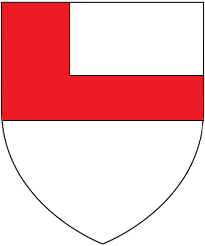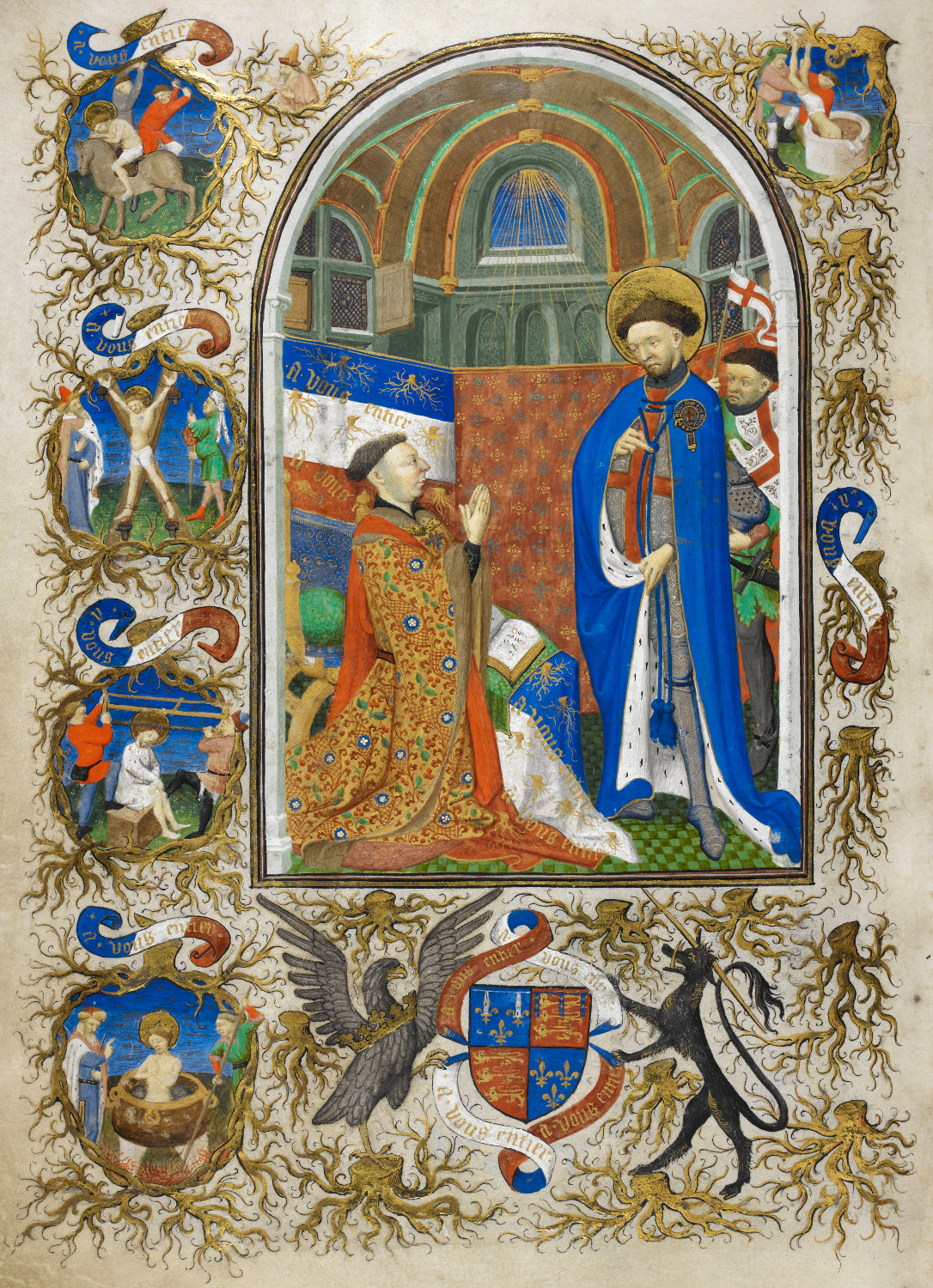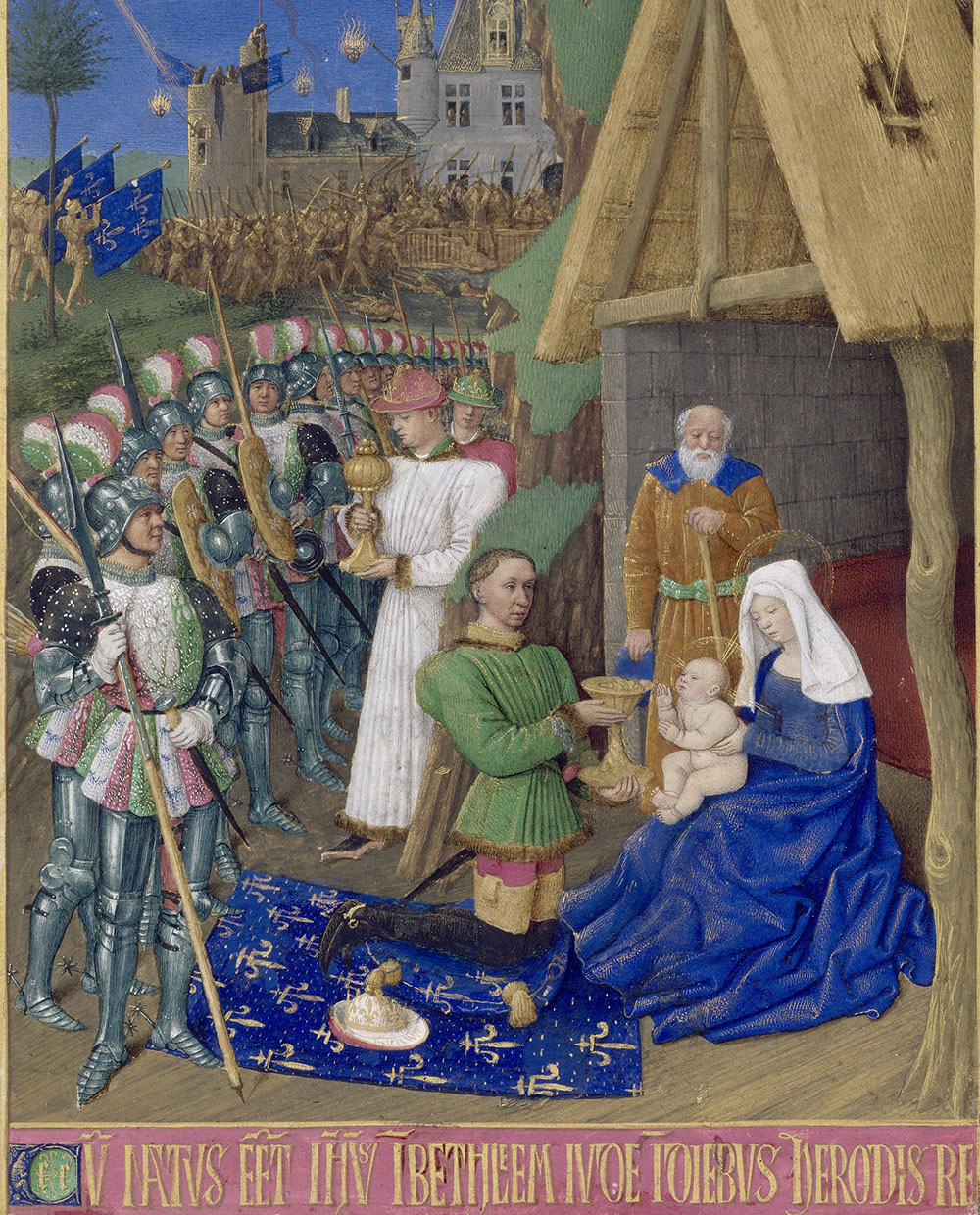|
Peter Of Luxembourg, Count Of Saint-Pol
Peter of Luxembourg (1390 – 31 August 1433) was a son of John of Luxembourg, Lord of Beauvoir, and his wife Marguerite of Enghien. His inheritance included the counties of Brienne, Conversano and Saint-Pol. Family Peter had succeeded his father, John of Luxembourg, Lord of Beauvoir, and mother, Marguerite of Enghien. They had co-reigned as Count and Countess of Brienne from 1394 to her death in 1397. His name originates from the fact that he was a 6th generation descendant of Henry V, Count of Luxembourg, and thus belonged to the french branch of the House of Luxembourg. Life Peter succeeded his aunt Jeanne of Luxembourg, Countess of Saint-Pol and Ligny, as Count of Saint-Pol in 1430. On 8 May 1405, Peter married Margaret de Baux, the daughter of Francis of Baux and his third wife Sueva Orsini. Peter and Margaret had: * Louis of Luxembourg, Count of Saint-Pol, de Brienne, de Ligny, and Conversano, Constable of France (1418 – 19 December 1475), married firstly, in 1435 ... [...More Info...] [...Related Items...] OR: [Wikipedia] [Google] [Baidu] |
Margaret De Baux
Margaret of Baux (french: Marguerite des Baux, it, Margherita del Balzo; 1394 – 15 November 1469) was a Countess of Saint-Pol, of Brienne, and of Conversano. She was a member of the noble House of Baux of the Kingdom of Naples, which had its origins in Provence dating back to the 11th century. Her husband was Peter of Luxembourg, Count of Saint-Pol, of Brienne, and of Conversano (1390 – 31 August 1433). Family Margaret was born in 1394, the daughter of Francis of Baux and his third wife Sueva Orsini. She was a descendant of Simon de Montfort, 6th Earl of Leicester and Eleanor of England (daughter of King John of England and Isabella of Angouleme, through their fourth son Guy de Montfort and his eldest daughter Anastasia de Montfort. Her paternal grandparents were Bertrand III of Baux, Count of Andria and Squillace, and Marguerite d'Aulnay, and her maternal grandparents were Nicolo Orsini, Count of Nola, Senator of Rome (27 August 1331 – 14 February 1399), and Jeanne d ... [...More Info...] [...Related Items...] OR: [Wikipedia] [Google] [Baidu] |
Louis De Luxembourg, Count Of Saint-Pol
Louis de Luxembourg, Count of Saint-Pol, of Brienne, de Ligny, and Conversano (1418 – 19 December 1475) belonged to the Ligny branch of the House of Luxemburg and was Constable of France. Life Saint-Pol was the eldest son of Peter of Luxembourg and Margaret de Baux. His name originates from the fact that he was a 7th generation descendant of Henry V, Count of Luxembourg, and thus belonged to the French branch of the House of Luxembourg. His older sister Jacqueline, better known as Jacquetta of Luxembourg, married John of Lancaster, 1st Duke of Bedford, and Louis was initially a supporter of the Lancastrian cause in the English Wars of the Roses. He was brought up by his uncle, John II of Luxembourg, Count of Ligny, who named Louis as heir to his estates. However, King Charles VII of France sequestrated the estates on John's death in 1441. As a result, Saint-Pol sought a rapprochement with the French king and duly had his inheritance restored to him. However, the county of ... [...More Info...] [...Related Items...] OR: [Wikipedia] [Google] [Baidu] |
Spain
, image_flag = Bandera de España.svg , image_coat = Escudo de España (mazonado).svg , national_motto = ''Plus ultra'' (Latin)(English: "Further Beyond") , national_anthem = (English: "Royal March") , image_map = , map_caption = , image_map2 = , capital = Madrid , coordinates = , largest_city = Madrid , languages_type = Official language , languages = Spanish , ethnic_groups = , ethnic_groups_year = , ethnic_groups_ref = , religion = , religion_ref = , religion_year = 2020 , demonym = , government_type = Unitary parliamentary constitutional monarchy , leader_title1 = Monarch , leader_name1 = Felipe VI , leader_title2 = Prime Minister , leader_name2 = Pedro Sánchez , legislature = C ... [...More Info...] [...Related Items...] OR: [Wikipedia] [Google] [Baidu] |
England
England is a country that is part of the United Kingdom. It shares land borders with Wales to its west and Scotland to its north. The Irish Sea lies northwest and the Celtic Sea to the southwest. It is separated from continental Europe by the North Sea to the east and the English Channel to the south. The country covers five-eighths of the island of Great Britain, which lies in the North Atlantic, and includes over 100 smaller islands, such as the Isles of Scilly and the Isle of Wight. The area now called England was first inhabited by modern humans during the Upper Paleolithic period, but takes its name from the Angles, a Germanic tribe deriving its name from the Anglia peninsula, who settled during the 5th and 6th centuries. England became a unified state in the 10th century and has had a significant cultural and legal impact on the wider world since the Age of Discovery, which began during the 15th century. The English language, the Anglican Church, and Engli ... [...More Info...] [...Related Items...] OR: [Wikipedia] [Google] [Baidu] |
France
France (), officially the French Republic ( ), is a country primarily located in Western Europe. It also comprises of overseas regions and territories in the Americas and the Atlantic, Pacific and Indian Oceans. Its metropolitan area extends from the Rhine to the Atlantic Ocean and from the Mediterranean Sea to the English Channel and the North Sea; overseas territories include French Guiana in South America, Saint Pierre and Miquelon in the North Atlantic, the French West Indies, and many islands in Oceania and the Indian Ocean. Due to its several coastal territories, France has the largest exclusive economic zone in the world. France borders Belgium, Luxembourg, Germany, Switzerland, Monaco, Italy, Andorra, and Spain in continental Europe, as well as the Netherlands, Suriname, and Brazil in the Americas via its overseas territories in French Guiana and Saint Martin. Its eighteen integral regions (five of which are overseas) span a combined area of and contain clos ... [...More Info...] [...Related Items...] OR: [Wikipedia] [Google] [Baidu] |
Luxembourg
Luxembourg ( ; lb, Lëtzebuerg ; french: link=no, Luxembourg; german: link=no, Luxemburg), officially the Grand Duchy of Luxembourg, ; french: link=no, Grand-Duché de Luxembourg ; german: link=no, Großherzogtum Luxemburg is a small landlocked country in Western Europe. It borders Belgium to the west and north, Germany to the east, and France to the south. Its capital and most populous city, Luxembourg, is one of the four institutional seats of the European Union (together with Brussels, Frankfurt, and Strasbourg) and the seat of several EU institutions, notably the Court of Justice of the European Union, the highest judicial authority. Luxembourg's culture, people, and languages are highly intertwined with its French and German neighbors; while Luxembourgish is legally the only national language of the Luxembourgish people, French and German are also used in administrative and judicial matters and all three are considered administrative languages of the cou ... [...More Info...] [...Related Items...] OR: [Wikipedia] [Google] [Baidu] |
Black Death
The Black Death (also known as the Pestilence, the Great Mortality or the Plague) was a bubonic plague pandemic occurring in Western Eurasia and North Africa from 1346 to 1353. It is the most fatal pandemic recorded in human history, causing the deaths of people, peaking in Europe from 1347 to 1351. Bubonic plague is caused by the bacterium '' Yersinia pestis'' spread by fleas, but it can also take a secondary form where it is spread by person-to-person contact via aerosols causing septicaemic or pneumonic plagues. The Black Death was the beginning of the second plague pandemic. The plague created religious, social and economic upheavals, with profound effects on the course of European history. The origin of the Black Death is disputed. The pandemic originated either in Central Asia or East Asia before spreading to Crimea with the Golden Horde army of Jani Beg as he was besieging the Genoese trading port of Kaffa in Crimea (1347). From Crimea, it was most likely carri ... [...More Info...] [...Related Items...] OR: [Wikipedia] [Google] [Baidu] |
Charles, Count Of Maine
Charles du Maine (1414–1472) was a French prince of blood and an advisor to Charles VII of France, his brother-in-law, during the Hundred Years' War. He was the third son of Louis II, Duke of Anjou and King of Naples, and Yolande of Aragon. In 1434, he married Cobella Ruffo (d. 1442), Countess of Montalto and Corigliano. They had one son, named Jean Louis Marin, who died as an infant. In 1437, he took up arms on behalf of King Charles VII of France, participating in the capture of Montereau, and that of Pontoise, in 1441. At this time, his brother, René of Anjou, ceded to him the County of Maine. He continued to take part in King Charles' campaigns. By his second marriage, in 1443, to Isabelle of Luxembourg (d. 1472), daughter of Peter I of Luxembourg, Count of Saint-Pol, he had two children: * Louise of Anjou (1445–1477, Carlat), married in 1462 at Poitiers, Jacques d'Armagnac, Duke of Nemours (d. 1477). * Charles IV, Duke of Anjou (1446–1481) A dispute ove ... [...More Info...] [...Related Items...] OR: [Wikipedia] [Google] [Baidu] |
Arthur III, Duke Of Brittany
Arthur III ( br, Arzhur), more commonly known as Arthur de Richemont (24 August 139326 December 1458), was briefly Duke of Brittany from 1457 until his death. He is noted primarily, however, for his role as a leading military commander during the Hundred Years' War. Although Richemont briefly sided with the English once, he otherwise remained firmly committed to the House of Valois. He fought alongside Joan of Arc, and was appointed Constable of France. His military and administrative reforms in the French state were an important factor in assuring the final defeat of the English in the Hundred Years' War. The name Richemont reflects the fact that he inherited the English title of Earl of Richmond, which was held by previous dukes of Brittany, but his tenure was never recognized by the English crown. At the very end of his life he became Duke of Brittany and Count of Montfort after inheriting those titles upon the death of his nephew Peter II. Richemont had no legitimate i ... [...More Info...] [...Related Items...] OR: [Wikipedia] [Google] [Baidu] |
Richard Woodville, 1st Earl Rivers
Richard Woodville, 1st Earl Rivers (1405 – 12 August 1469), also Wydeville, was the father of Elizabeth Woodville and father-in-law of Edward IV. Early life Born at Maidstone in Kent, Richard Woodville was the son of Richard Wydeville (Woodville), chamberlain to the Duke of Bedford, and Joan Bittlesgate (or Bedlisgate), the daughter of Thomas Bittlesgate of Knightstone"Woodville Family", http://www.tudorplace.com.ar/WOODVILLE.htm. Accessed on 10-4-2015. in the parish of Ottery St Mary in Devon. He was also a grandson of John Wydeville who was Sheriff of Northamptonshire (in 1380, 1385, 1390). Marriage and courtly career Woodville followed his father into service with the Duke of Bedford. In 1433 the Duke had married the 17-year-old Jacquetta of Luxembourg; she was the Duke's second wife and he was significantly older and in ill health. When the Duke died in 1435, Jacquetta was left a childless and wealthy widow. She was required to seek permission from King Henry VI ... [...More Info...] [...Related Items...] OR: [Wikipedia] [Google] [Baidu] |
John, Duke Of Bedford
John of Lancaster, Duke of Bedford KG (20 June 138914 September 1435) was a medieval English prince, general and statesman who commanded England's armies in France during a critical phase of the Hundred Years' War. Bedford was the third son of King Henry IV of England, brother to Henry V, and acted as regent of France for his nephew Henry VI. Despite his military and administrative talent, the situation in France had severely deteriorated by the time of his death. Bedford was a capable administrator and soldier, and his effective management of the war brought the English to the height of their power in France. However, difficulties mounted after the arrival of Joan of Arc, and his efforts were further thwarted by political divisions at home and the wavering of England's key ally, Duke Philip of Burgundy and his faction, the Burgundians. In the last years of Bedford's life, the conflict devolved into a war of attrition, and he became increasingly unable to gather the necessary ... [...More Info...] [...Related Items...] OR: [Wikipedia] [Google] [Baidu] |
Louis XI Of France
Louis XI (3 July 1423 – 30 August 1483), called "Louis the Prudent" (french: le Prudent), was King of France from 1461 to 1483. He succeeded his father, Charles VII. Louis entered into open rebellion against his father in a short-lived revolt known as the Praguerie in 1440. The king forgave his rebellious vassals, including Louis, to whom he entrusted the management of the Dauphiné, then a province in southeastern France. Louis's ceaseless intrigues, however, led his father to banish him from court. From the Dauphiné, Louis led his own political establishment and married Charlotte of Savoy, daughter of Louis, Duke of Savoy, against the will of his father. Charles VII sent an army to compel his son to his will, but Louis fled to Burgundy, where he was hosted by Philip the Good, the Duke of Burgundy, Charles' greatest enemy. When Charles VII died in 1461, Louis left the Burgundian court to take possession of his kingdom. His taste for intrigue and his intense diplomatic a ... [...More Info...] [...Related Items...] OR: [Wikipedia] [Google] [Baidu] |





